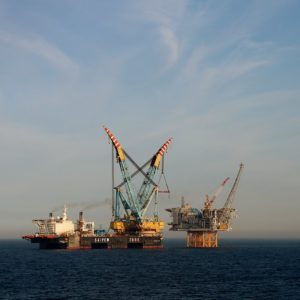-
Oil companies reversing trend of declining investment in future production, with focus on offshore
Date posted:
-
-
-
Post Author
Patrick LaveryCombustion Industry News Editor
-
-

Reuters has reported that oil companies have reversed a trend of declining investment in exploration and production by putting billions of dollars into offshore drilling, with high oil prices and the prospect of the current energy supply squeeze continuing for multiple years influencing executives’ decisions. While more costly in terms of capital investments, offshore oil production can be cheaper on an ongoing basis, according to the consultancy Rystad Energy referenced by the report (with onshore production at US$28.20 per barrel as a break-even cost, and offshore production at US$18.10). While they also typically produce fewer greenhouse gas emissions per barrel of oil produced, their environmental benefit is questionable, as they are designed to operate for many years and are usually large scale, raising the possibility of larger absolute emissions for a higher number of years.
An example of a possible new production location is Equinor’s Bay du Nord project, some 500 km off the coast of Newfoundland in Canada. Being outside of Canada’s maritime borders, royalties from the project would have to be paid by Canada to the United Nations, which would be a first for such extraction, and a sign of the added complexity of many new oil producing sites. The Bay du Nord project’s carbon dioxide-equivalent emissions would be less than 8 kg/barrel of oil, lower than half the international average for oil production.
Overall, offshore oil production investment is set to rise by 27% between 2021 and 2024 to US$173 billion, while onshore production is also set to rise, though by less. Perception of the financial risk to such long-term oil production projects is varied, with some predicting a high risk of the asset becoming ‘stranded’ either through a lack of future demand or regulation/legislation, and others, such as energy consultancy Wood Mackenzie, believing the demand for oil will remain strong to 2050, even with efforts to meet net-zero targets.
